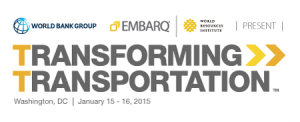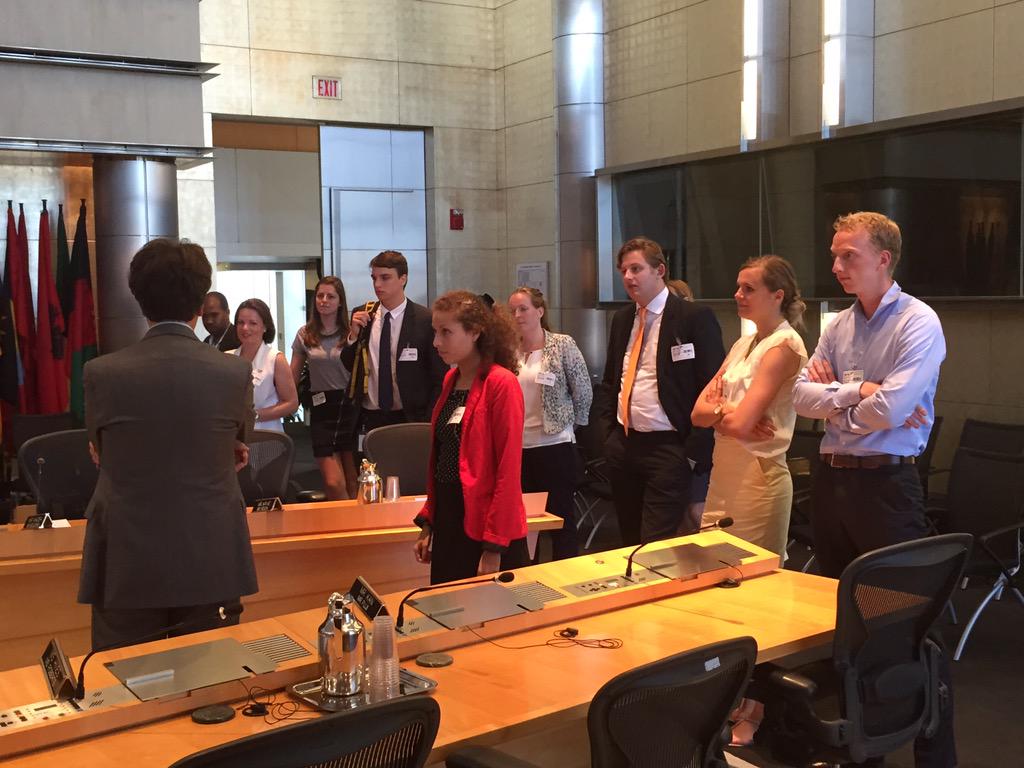Transforming Transportation (#TTDC15) is the annual conference co-organized by EMBARQ, the sustainable urban transport program of the World Resources Institute (WRI), and the World Bank. The event convenes leading transport and urban development experts from national and local government, finance institutions, foundations, civil society, and business to discuss the latest global trends, experiences, and best practices in sustainable transport.
This year’s conference will focus on Smart Cities for Shared Prosperity, and will examine how smart, connected urban mobility can improve quality of life in cities. Through panels, presentations, and networking opportunities, discussions at Transforming Transportation 2015 will address how the upcoming United Nations Sustainable Development Goals (SDGs) impact urban transport, with an emphasis on data and technology, governance, and international financial flows.
Transforming Transportation 2015 will take place January 15 – 16, 2015 at the World Bank headquarters in Washington, DC.
For more information please click here
 developed world too, including the United States—is in the midst of a big push toward Universal Health Coverage (UHC). There is, however, confusion about what UHC means and how to measure it. As a result it is unclear how far countries are from reaching UHC, and the degree to which different UHC-inspired reforms have actually helped move countries towards UHC. Continue reading
developed world too, including the United States—is in the midst of a big push toward Universal Health Coverage (UHC). There is, however, confusion about what UHC means and how to measure it. As a result it is unclear how far countries are from reaching UHC, and the degree to which different UHC-inspired reforms have actually helped move countries towards UHC. Continue reading 


You must be logged in to post a comment.